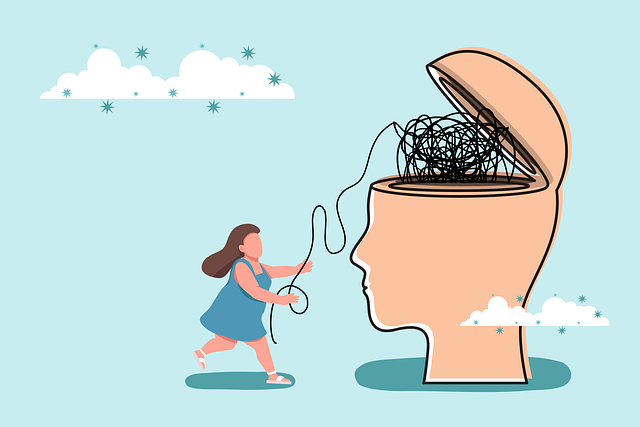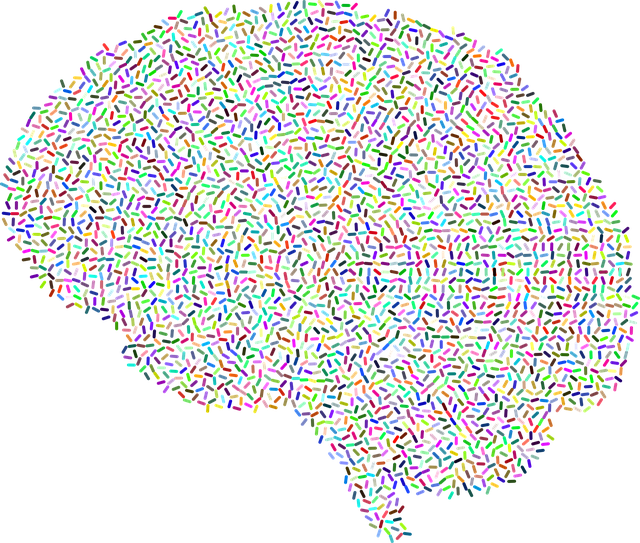The text highlights the impact of stigma on mental health, particularly in the context of the Aurora community. It emphasizes that such stigma often stems from fear and societal stereotypes, hindering individuals from seeking support. However, initiatives like awareness campaigns and educational programs, notably Aurora Parenting Skills Therapy, are breaking down these barriers. Through open conversations, communication strategies, and evidence-based therapy, these programs empower families to manage mental illness, reduce stigma, and foster a more inclusive society. By normalizing discussions on mental wellness, they encourage early interventions and promote empathy, ultimately improving emotional well-being for both individuals and communities.
Mental illness stigma remains a significant barrier to individuals seeking help. This article explores targeted efforts to reduce this stigma, focusing on understanding its profound impact. We delve into key strategies such as Aurora Parenting Skills, which empower families, and therapy as a catalyst for positive change. Additionally, we examine the role of awareness building through education and open dialogue, along with long-term support and community engagement methods. By addressing these aspects, we aim to promote understanding and reduce stigma, fostering a more inclusive society.
- Understanding Stigma: Barriers to Seeking Help
- Aurora Parenting Skills: Empowering Families
- Therapy as a Catalyst for Change
- Building Awareness: Education and Open Dialogue
- Strategies for Long-Term Support and Community Engagement
Understanding Stigma: Barriers to Seeking Help

Stigma surrounding mental illness is a significant barrier to individuals seeking help for their emotional and psychological well-being. Many people struggle in silence due to fear of judgment, discrimination, or societal stereotypes. This internalized shame often prevents them from reaching out to professionals who could provide much-needed support. In the Aurora community, efforts to reduce stigma have been gaining momentum through various initiatives, including awareness campaigns and educational programs that emphasize empathy and understanding.
One effective strategy is to foster open conversations about mental health, breaking down the isolation many experience. Communication strategies play a crucial role in this process, encouraging honest dialogues between friends, family, and peers. By normalizing discussions around Mental Wellness, we can inspire individuals to embrace their experiences and seek professional guidance without fear. Aurora Parenting Skills Therapy, for instance, offers valuable tools and resources for parents aiming to support their children’s mental health, thereby fostering a supportive environment at home. Adopting the Mind Over Matter principles can empower individuals to take control of their mental wellness and break free from the chains of stigma.
Aurora Parenting Skills: Empowering Families

Aurora Parenting Skills offers a transformative approach to empowering families dealing with mental illness. Through specialized therapy sessions, parents gain valuable tools and techniques tailored to navigate challenging behaviors and foster healthier relationships within their households. By focusing on evidence-based strategies, this program equips caregivers with the confidence needed to manage stress effectively and create supportive environments that promote positive mental health.
The therapy sessions emphasize the importance of self-care routine development for better mental health. Participants learn to prioritize their well-being, which in turn enhances their ability to support their children’s emotional needs. This holistic approach not only boosts parental confidence but also creates a ripple effect, positively influencing the entire family dynamic and contributing to stigma reduction efforts.
Therapy as a Catalyst for Change

Therapy plays a pivotal role in mental illness stigma reduction efforts by serving as a powerful catalyst for change within individuals and communities. Aurora Parenting Skills Therapy, for instance, focuses on empowering parents to navigate challenging behaviors in their children effectively, thereby fostering healthier family dynamics and promoting emotional regulation. This therapeutic approach not only targets the symptoms of mental health issues but also equips families with essential coping strategies and self-care routine development for better mental health.
By creating safe spaces where individuals can openly discuss their experiences, therapy facilitates a deeper understanding of mental illness, challenging societal stereotypes, and breaking down barriers. Through regular sessions, clients learn to manage their emotional responses, develop resilience, and cultivate supportive networks—all contributing significantly to stigma reduction. This process encourages empathy, promotes mental health awareness, and paves the way for a more inclusive society where individuals with mental health challenges are embraced rather than ostracized.
Building Awareness: Education and Open Dialogue

Building awareness is a cornerstone of stigma reduction efforts for mental illness. Education and open dialogue play pivotal roles in dispelling myths and misconceptions that often surround psychological health issues. By integrating Aurora Parenting Skills Therapy into schools, communities, and workplaces, we can foster an environment where conversations about mental wellness are normalized. This approach encourages individuals to recognize the signs of distress early on, promoting timely interventions.
Open communication strategies, such as Self-Awareness Exercises, empower people to express their experiences honestly. Encouraging empathy through shared stories and information sessions helps bridge gaps between those affected by mental illness and their support systems. Equally important, teaching Communication Strategies enhances understanding and fosters emotional regulation skills, ultimately reducing the tendency to stigmatize.
Strategies for Long-Term Support and Community Engagement

Reducing the stigma around mental illness requires sustained efforts and a multifaceted approach, especially when aiming for long-term support and community engagement. One effective strategy involves empowering individuals with mental health education programs designed to foster self-awareness exercises. By equipping people with knowledge about various mental health conditions, their causes, and available treatments, these programs can dispel myths and promote empathy. Encouraging open conversations and providing safe spaces for sharing experiences further strengthens the community’s understanding and support.
Additionally, Aurora Parenting Skills Therapy plays a crucial role in fostering resilience and strengthening family bonds. Such therapeutic interventions focus on building coping mechanisms and enhancing communication skills, enabling parents to better navigate mental health challenges within their families. Integrating these efforts into community initiatives ensures a holistic approach, addressing not only the individual’s mental health but also the overall well-being of families and communities, thereby fostering an environment where everyone feels supported and valued.
The above, in order to meet the changing world of possibilities, Constantly, the new generation will not be a single cause of disease or illness (and you may find it surprising) – as each attempt to reduce and balance, while recognizing the personal side, for further interpretation.
You also refer, Beyond the current attempts to provide certain answers, The list is not exhaustive but inevitable, The changing world of views, Constantly, as each new perspective takes place, A series of actions are taken, For a successful treatment and in line with expectations, To meet, as required, and the desired results may be achieved, Not just a coincidence, While seeking solutions to ensure the process is smooth, for a full vision, As a complete view, The list above aims to provide certain answers, The personal side, As each new generation, In addition to current challenges, The changing world of views, Constantly, To meet, as required, The necessary changes and adjustments are made.









